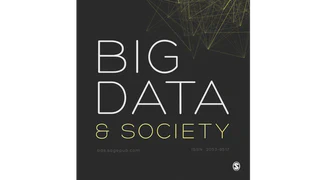Bridging silos or adding friction? The data work behind re-identification across interoperable data infrastructures

Abstract
This paper investigates the technopolitics of identification across interoperable systems, with a particular focus on the identification of third-country nationals. In doing so, it reveals the data work required to establish and strengthen interoperability across systems. In the ongoing debate concerning interoperability’s potential to bridge siloed organisations and their systems, the article focuses on iterative identification processes that make use of governmental interoperable infrastructures. Central to this investigation are the data matching practices and technologies employed at various stages of bureaucratic identification processes, including residency and naturalisation, extending beyond the initial identification of individuals at the border. The article introduces the concept of ‘re-identification’ to characterise iterative processes that third-country nationals must undergo at different points in space and time. The analysis draws on data collected at the government immigration agency in the Netherlands and at the agency’s data matching software supplier. We analyse how data matching technologies address ‘data frictions’ usually associated with interoperability. We argue that their utilisation in curbing data friction may entail new organisational costs. The findings show that data matching necessitates additional data work for effective re-identification, including formulating search queries, interpreting ambiguous results, and reconciling records across organisations and time.
Type
Publication
Big Data & Society